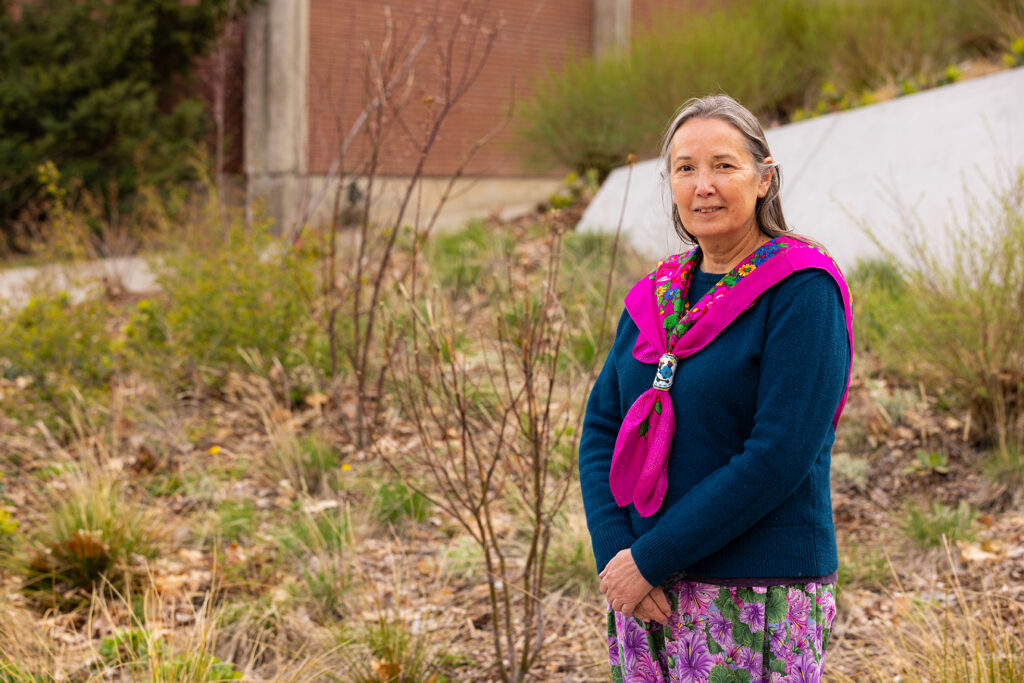These days, modern cash crops have almost completely displaced the prairie flowers, grasses and roots that once sustained countless generations of Native peoples in the Inland Northwest. Nor do massive salmon runs fill the region’s rivers and streams.
For the past three years, Eastern students, staff and faculty members have been working with local experts to bring at least a simulacrum of this “landscape lost” back to life. (See our immersive story about the Prairie Restoration Project.) Among those participating is EWU alumna Melodi Wynne, ’07, a citizen of the Spokane Tribe who has become a leader in the movement to restore “food sovereignty” to the Native peoples of the Upper Columbia Plateau.



